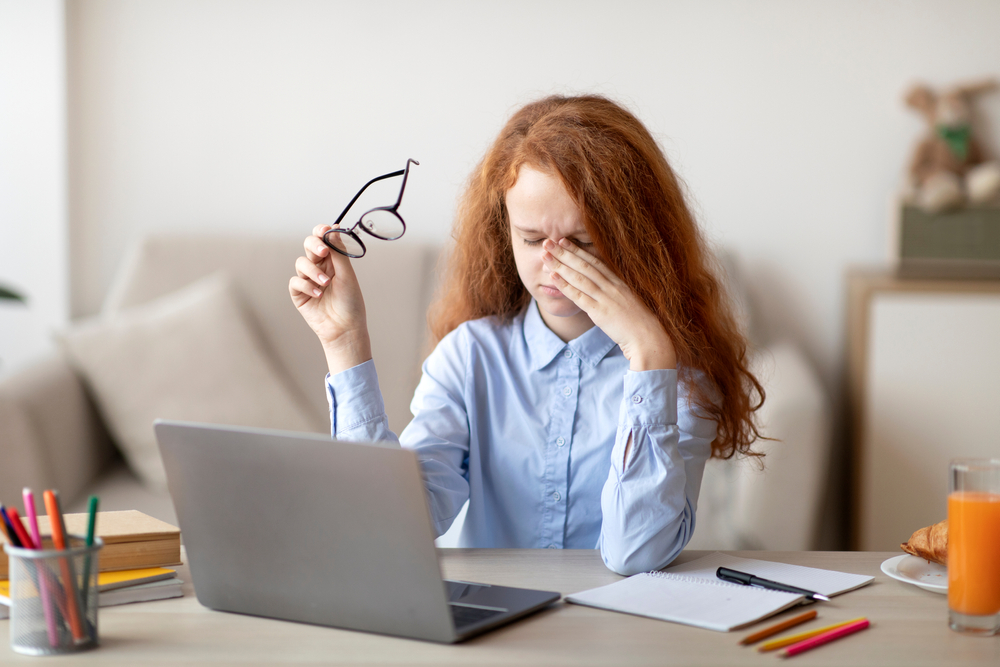
In our increasingly digital world, it's become almost impossible to avoid screens. Whether it's smartphones, tablets, computers, or TVs, most of us spend a significant portion of our day staring at screens. This phenomenon, known as screen time, has become a topic of interest for researchers and medical professionals alike. On the other hand, myopia, also known as nearsightedness, is a common eye condition that affects people's ability to see objects clearly at a distance.
Understanding Myopia
Myopia is an eye disorder that results in blurry vision when looking at distant objects. Myopia occurs when the eyeball is too long or the cornea (the clear front cover of the eye) is too curved. As a result, the light entering the eye isn't focused correctly, and distant objects look blurred.
The prevalence of myopia has been increasing globally, and it's particularly common among children and young adults. Numerous factors can contribute to the development of myopia, including genetic factors and environmental influences. One of the most significant environmental factors that have been linked to myopia is extensive near work, such as reading or using electronic devices — in other words, increased screen time.
The Surprising Link Between Screen Time and Myopia
Screen time often involves close-up work and limited blinking, both of which can strain the eyes and potentially contribute to the development of myopia. When we spend a lot of time focusing on screens, our eyes are constantly adjusting and refocusing, which can cause fatigue and strain. Additionally, spending prolonged periods indoors and not getting enough natural light can also contribute to myopia development.
How Screen Time Affects Our Eyes
The more time we spend on screens, the more our eyes have to work. When we focus on a screen, our eyes need to constantly adjust to the changing images, text, and light levels. This constant adjustment can strain the eye muscles and potentially lead to myopia.
In addition to the strain caused by constant focusing, screen time also often involves a lot of close-up work. This near work can cause the eyes to become accustomed to focusing at a close range, which may lead to the development of myopia.
Finally, screen time often leads to reduced blinking. Blinking is essential for maintaining the health of the eye's surface and preventing dryness and irritation. Reduced blinking during screen time can lead to dry, irritated eyes, which can further strain the eyes and contribute to myopia.
Current Studies and Research on Screen Time and Myopia
Several scientific studies have explored the link between screen time and myopia. One study published in the British Journal of Ophthalmology found a significant association between screen time and myopia in children. Similarly, a study published in the Journal of the American Medical Association (JAMA) reported that each additional hour spent on screens was associated with a significant increase in the likelihood of myopia in children. These studies and others like them provide strong evidence for the link between screen time and myopia.
Treatment Options for Screen Time-Induced Myopia
There are several treatment options available for managing screen time-induced myopia. These include corrective eyewear, like glasses and contact lenses, and refractive surgeries, like LASIK. In some cases, eye exercises may also be recommended to help relieve eye strain and potentially slow the progression of myopia.
However, the most effective treatment is prevention. This involves reducing screen time, taking regular breaks from screens, and ensuring that you spend enough time outdoors in natural light.
The Importance of Regular Eye Exams
Regular eye exams are crucial in detecting myopia early and managing its progression. These exams allow your eye doctor to monitor the health of your eyes and detect any changes in your vision.
If you have a high amount of screen time, it's particularly important to have regular eye exams. This can help detect any signs of myopia early and allow for timely treatment. Early detection and treatment of myopia can help prevent complications and ensure that you maintain good eye health.
Balancing Screen Time for Better Eye Health
There is a surprising link between screen time and myopia. By understanding this link and taking steps to reduce screen time, it's possible to manage and even prevent screen time-induced myopia.
Balancing screen time is crucial for maintaining good eye health. This involves taking regular breaks from screens, spending time outdoors in natural light, and having regular eye exams. By adopting these practices, we can protect our eyes and ensure that we maintain good vision, even in our increasingly digital world.
For more information on the link between screen time and myopia, contact Metro Eye Care at our office in Edwardsville, Illinois. Call (618) 659-1900 to schedule an appointment today.





